Extension Foundation Online Campus
Search results: 241
This course is intended to satisfy the annual ethics training requirements for the City of Bozeman employees, elected officials and appointed officials. The training is based on the Montana Code Annotated and City of Bozeman policy, and will educate participants in laws, policies, and best practices.
For more information or to enroll please contact: Ashley Kent, Montana State University Extension, ashleykent@montana.edu
- Teacher: Ashley Kent
- Teacher: Lydia Maunz
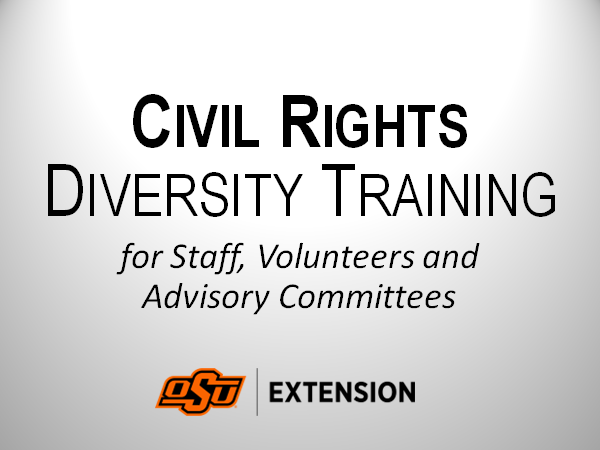

This 12 minute video overview explains our civil rights responsibilities for all Extension staff, volunteers, advisory councils, and committees.
Everyone making a decision or carrying out actions on behalf of Extension is responsible to make sure the program is inclusive as we serve the people of Oklahoma.
For more information contact Leah Haxton, Oklahoma State University, at Leah.g.haxton@okstate.edu or Karla Knoepfli, Oklahoma State University, at karla.knoepfli@okstate.edu
- Teacher: carl hamby
- Teacher: Leah Haxton
- Teacher: Dwayne Hunter
- Teacher: Karla Knoepfli
Listen about some of the cost-share programs offered to help landowners access and manage their forest properties.
1.0 category 1 CEU - $20
- Teacher: Raymond Berthiaume
1.0 Category 1 CEU; $20
- Teacher: Raymond Berthiaume
This training fulfills the need for the accredited food safety training required in LB 304, part of the Nebraska Pure Food Act. This course is specific to Nebraska’s laws and may not reflect those in other states or countries.
This training has been endorsed by: The Nebraska Department of Agriculture and The Douglas County (Nebraska, United States) Health Department.
- Teacher: Cindy Brison, MS, RDN
- Teacher: David Diez
- Teacher: Kezia Huseman
- Teacher: Linda Reddish
- Teacher: Angie Rushman
- Teacher: Deborah Weitzenkamp

This five-module course is designed to support learners in understanding the importance of creating strong partnerships between veterinarians and producers to enhance profitability and sustainability.
What's included:
Video Learning Modules
Module 1 - Communication: A Vital Role in Establishing a Viable Relationship
Module 2 - The Veterinarian-Client-Patient (VCPR) Relationship Mystery
Module 3 - Benefits of a Veterinarian-Client-Patient Relationship (VCPR) for the Use and Accessibility of Drugs
Module 4 - Utilize the Veterinary Feed & Directive and Additional Guidelines in Establishing a VCPR
Module 5 - Distance Animal Care
Study Guides
Resources to support learner engagement while navigating video lessons.
Details
- Self-Paced
- Estimated time of completion: 7 hours
- User must score > 70% on the Post-Test to receive a certificate at the end of the course.
- Teacher: CET Administration
- Teacher: Bette Bittner
- Teacher: CET HelpDesk
- Teacher: Miguel Hoch
- Teacher: Nicola Ritter
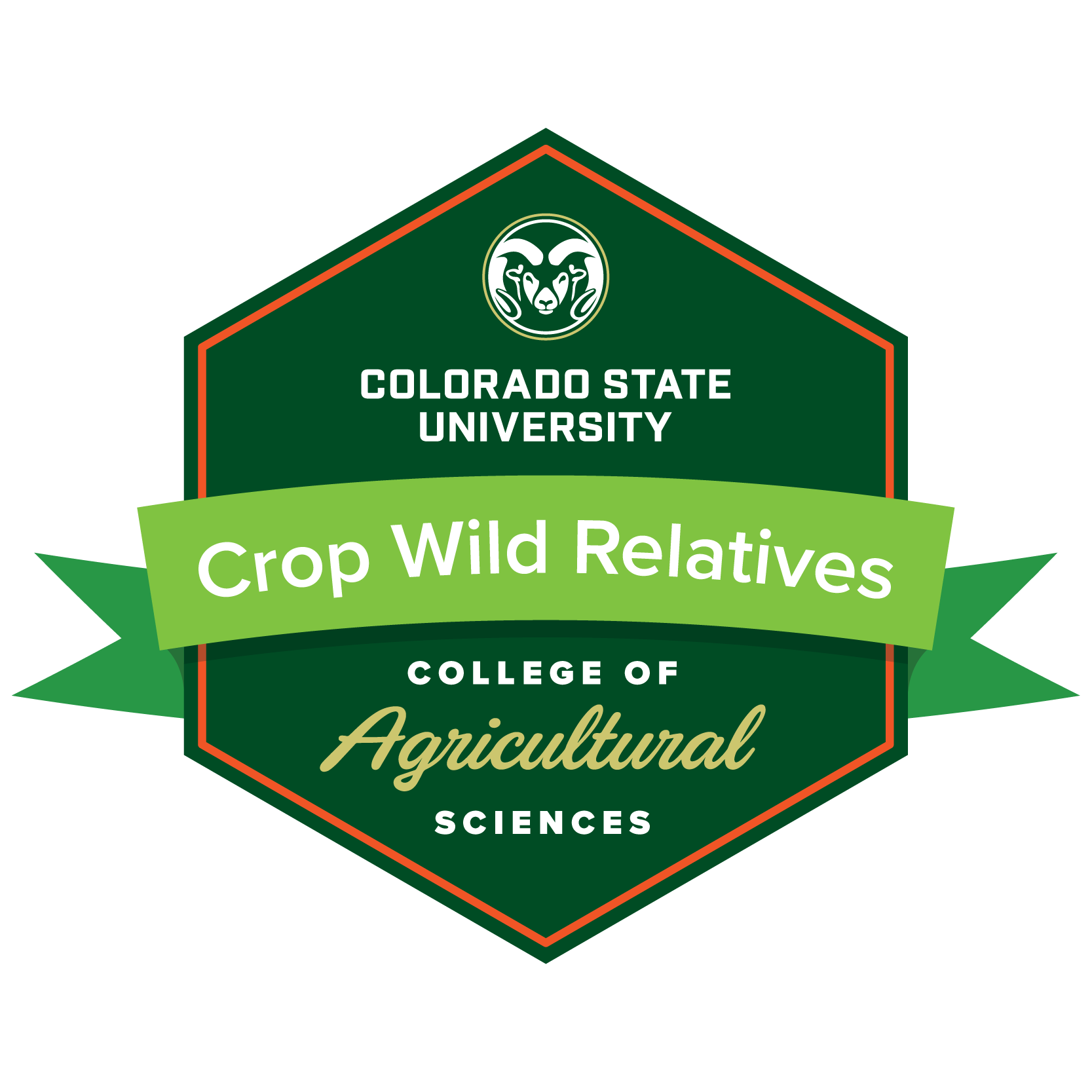
This online mini-course is intended for anyone new to seed science, plant breeding or even general agriculture, about to begin employment in agriculture outside of their family business or wishing to improve their current skills and knowledge.
Development of this Badge Course was made possible through a collaboration between Colorado State University and the United States Department of Agriculture.
This course is supported in part by grant 2020-70003-30930 from the USDA-NIFA Higher Education Challenge Grant Program, administered by Colorado State University. Any opinions, findings, conclusions or recommendations expressed in this publication are those of the author(s) and do not necessarily reflect the views of the USDA-NIFA.

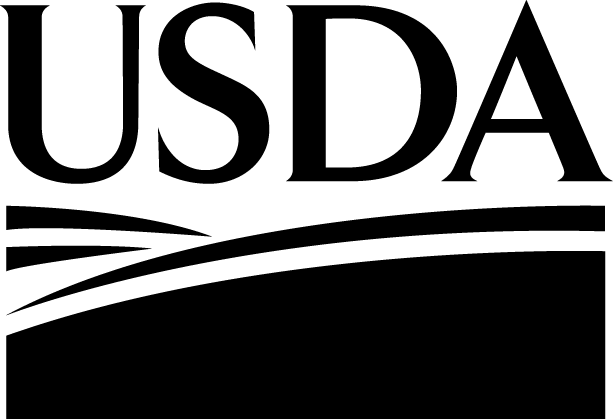
- Teacher: Deana Namuth-Covert
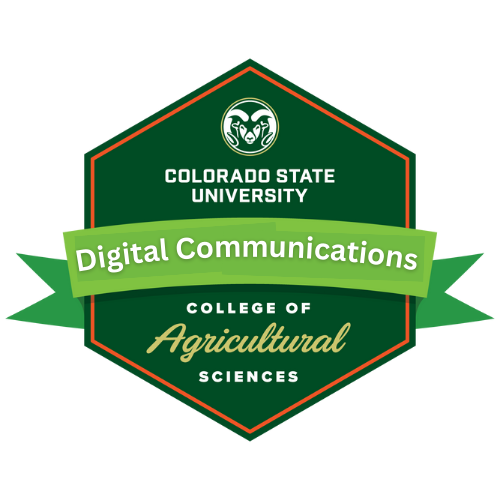
- Teacher: Deana Namuth-Covert
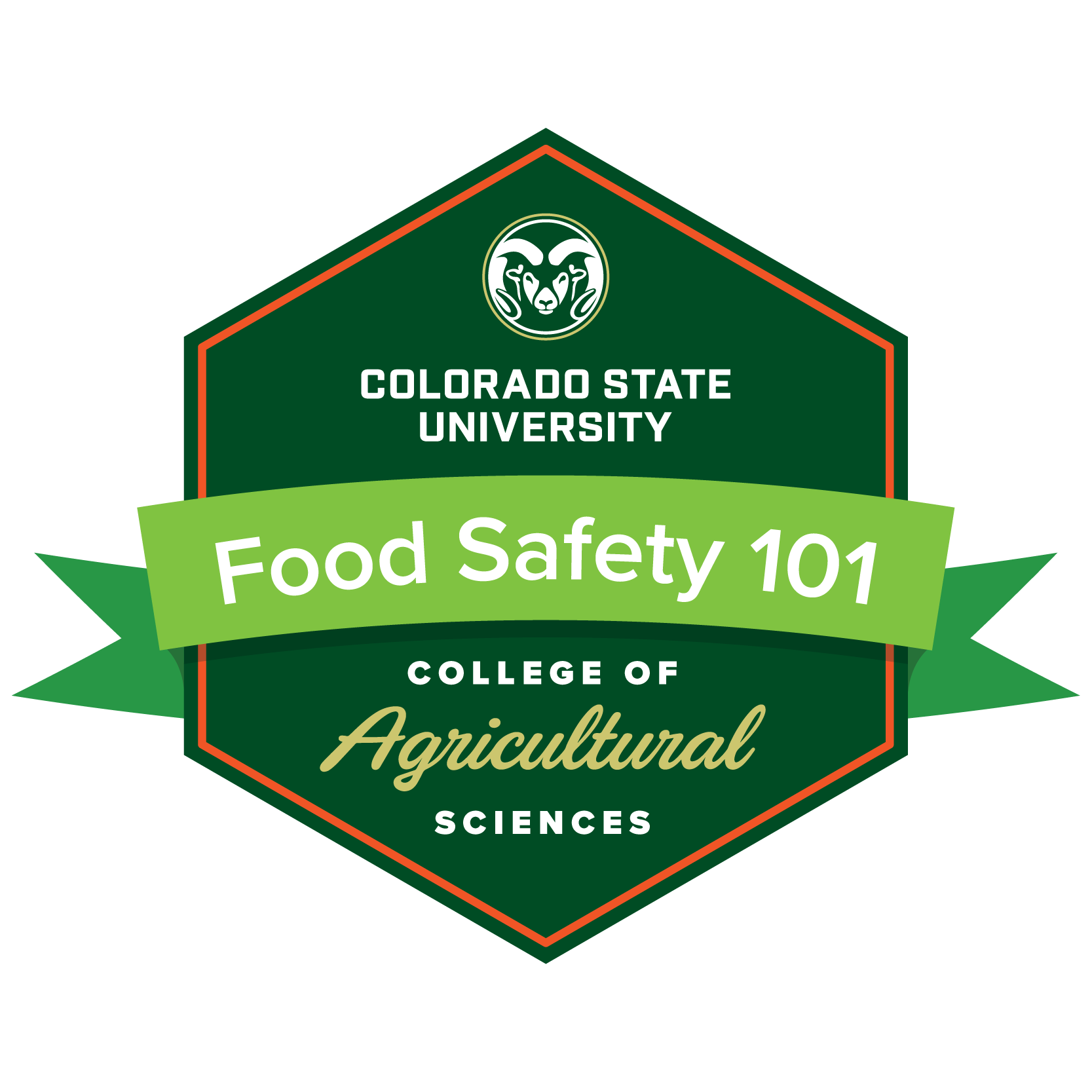
Pilot online course for select Colorado high schools, as part of the CSU Ag Upskilling program. This course is made available by a grant from Zoma Labs support of the SyncUp Colorado program.
Email Deana.Namuth-Covert@colostate.edu for access key code and course instructions.

- Teacher: Tamla Blunt
- Teacher: Deana Namuth-Covert
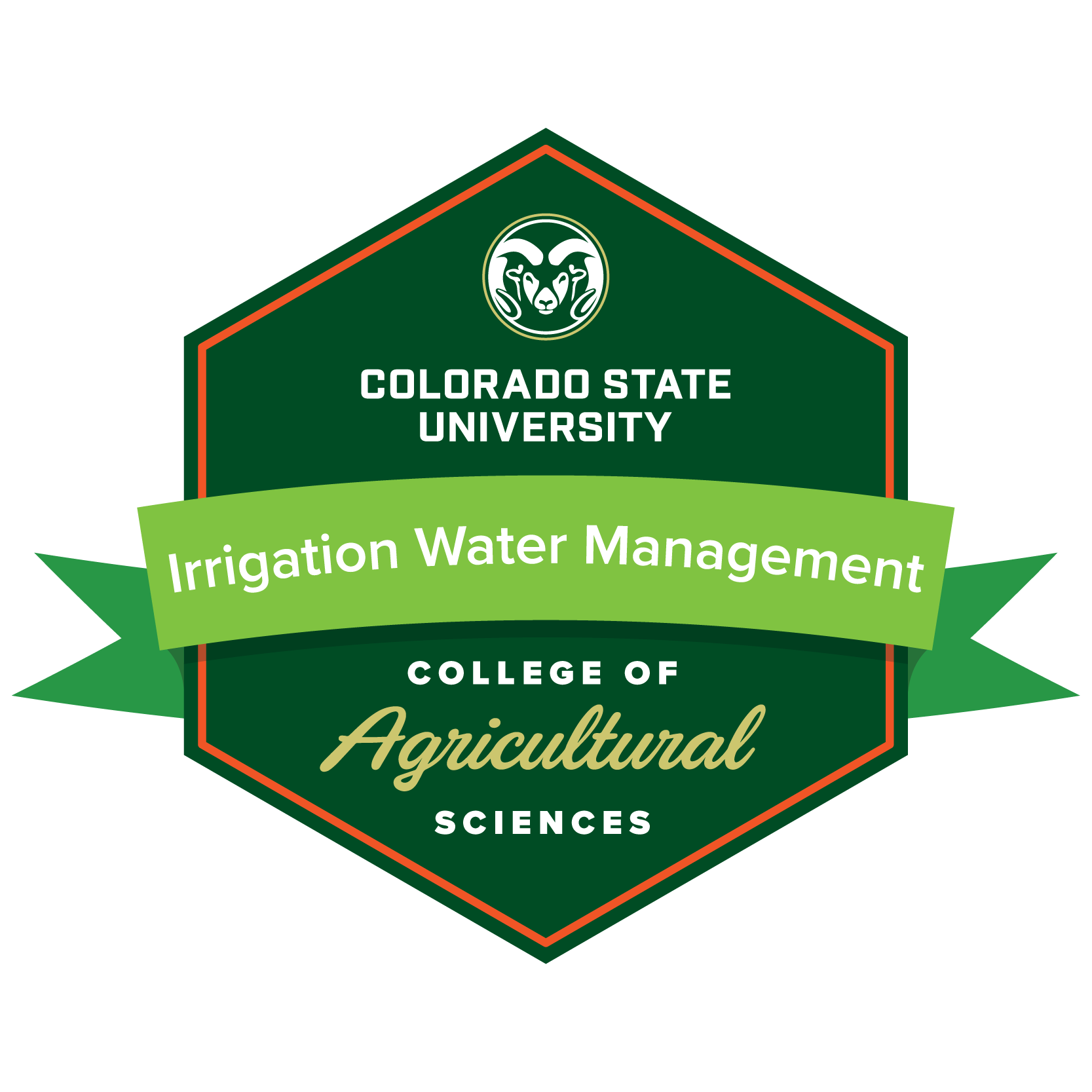
Development of this Badge was supported in part by funding from the CHS Foundation, administered by Colorado State University (2022). The CHS Foundation, funded by charitable gifts from CHS Inc., is focused on developing a new generation of agriculture leaders for life-long success. Together, with our partners, we are igniting innovation and driving excellence in agriculture education, cultivating high impact programs for rural youth and accelerating potential for careers in agriculture.
Learn more at CHS Foundation.
Email Deana.Namuth-Covert@colostate.edu to receive an access key code and course instructions.

- Teacher: Allan Andales
- Teacher: Tamla Blunt
- Teacher: Deana Namuth-Covert
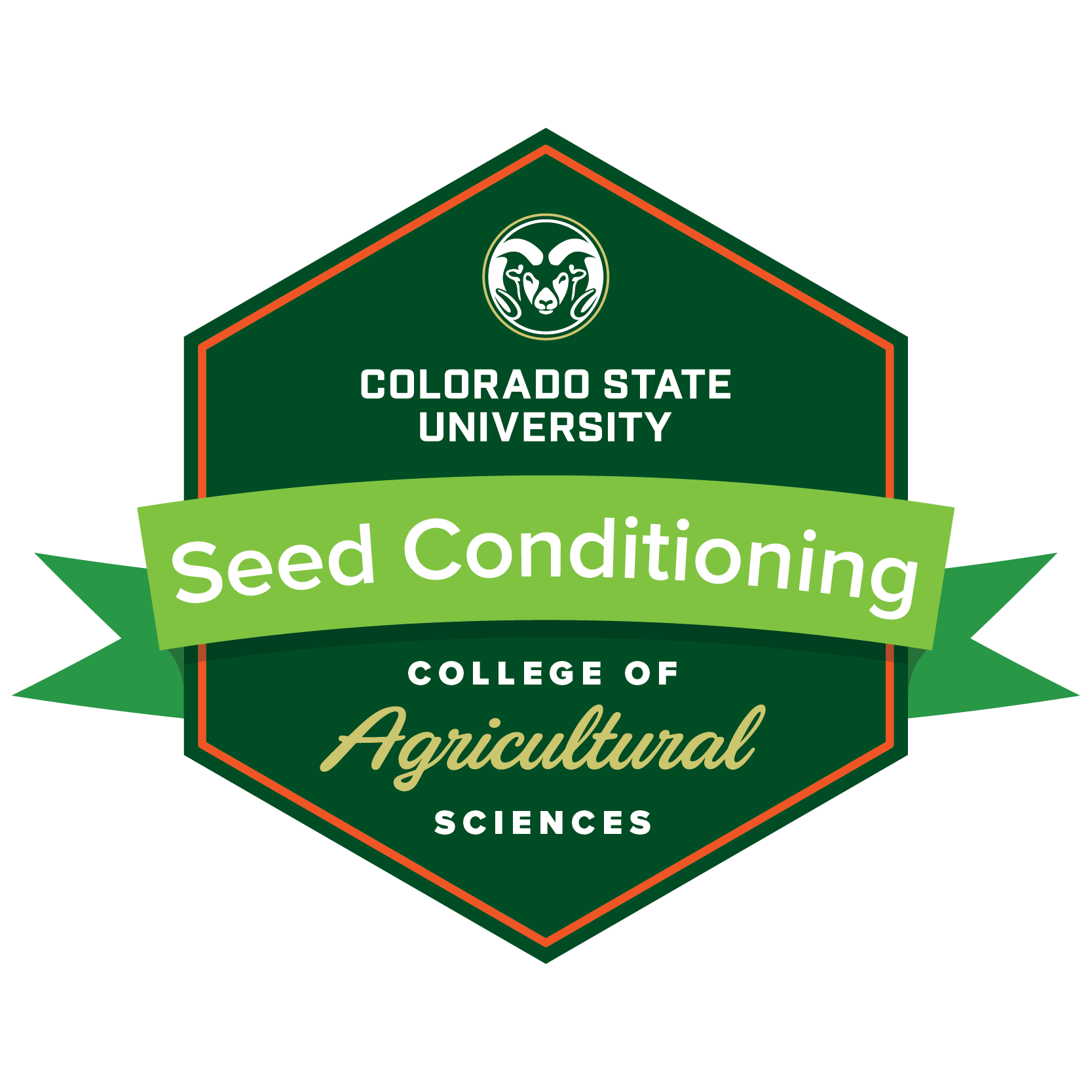
This Seed Conditioning Course is available to high school and college students at no charge thanks to grant funding. It consists of a set of 7 interactive lessons and a final graded quiz. Lessons include: 1) Seed Conditioning Basics, 2) The Influence of Seed Conditioning on Seed Quality, 3) Plant Breeding & Intellectual Property Protection of Seed and Plant Varieties, 4) Sourcing, Sampling and Handling of Unconditioned and Conditioned Seed, 5) Quality Assurance and Seed Conditioning Facility Management, 6) Carryover Seed, Inventory, and Seed Storage and 7) Seedborne Disease and Treatments. Lessons were approved for CEU credit with the national Certified Crop Advisor program.
Please contact Laura Pottorff for more information: Laura.Pottorff@colostate.edu
- Teacher: Tamla Blunt
- Teacher: Deana Namuth-Covert
- Teacher: Rick Novak
- Teacher: Laura Pottorff
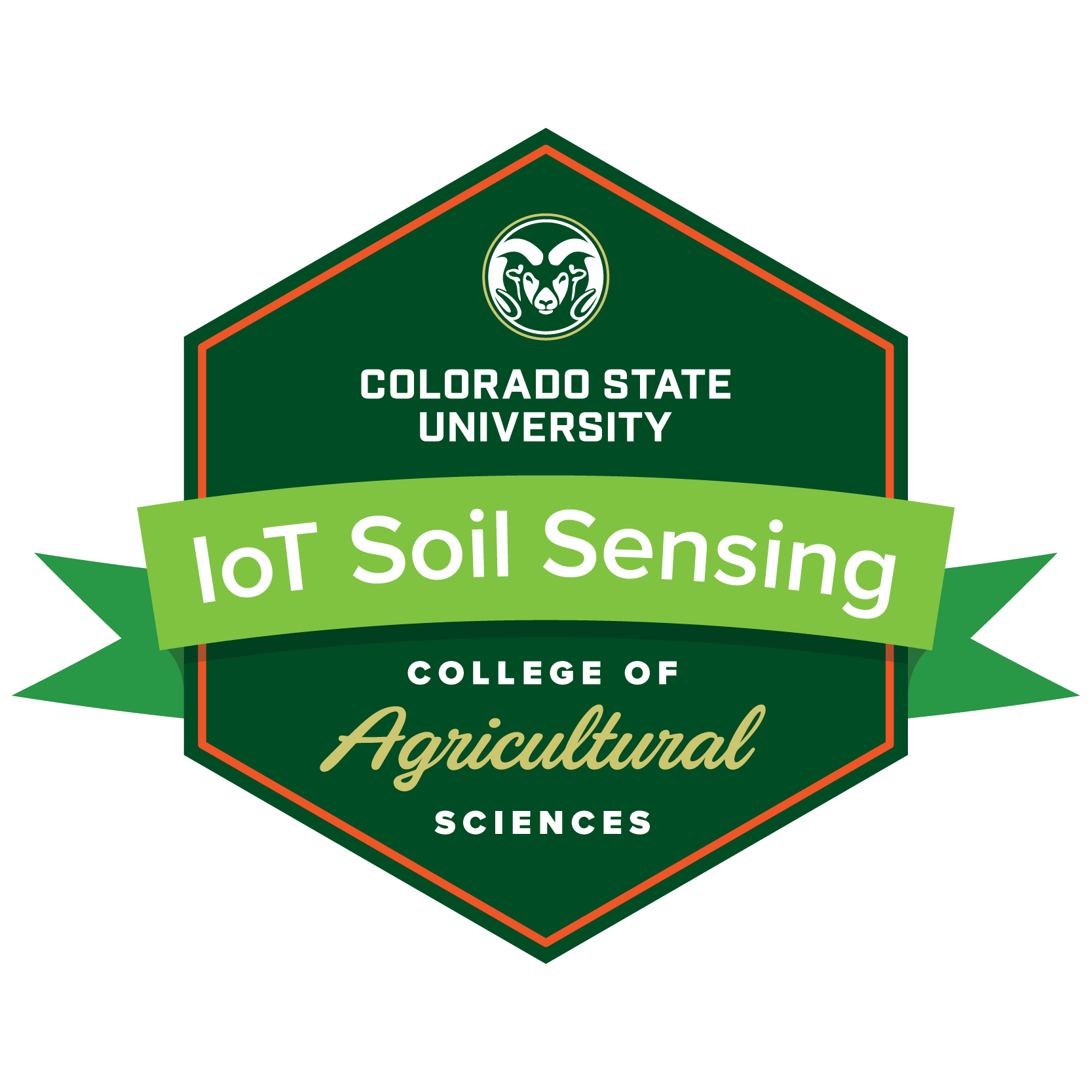
This CSU Badge introduces foundation principles on how internet-of-things (IoT) technology and sensors can be used to provide real-time soil moisture and weather data, allowing growers to improve the timing and amounts of irrigation – saving water and avoiding plant water stress. These general principles are applicable to either landscape or agriculture irrigation sectors, including a wide range of scenarios such as efficiently watering a backyard garden, growing vegetables in a greenhouse, maintaining golf courses and lawns, as well as irrigating large crop fields. Using a kit containing sensors and a wireless IoT microcontroller, participants will gaine hands-on experience building, programming, and using their own IoT (i.e, sensor-based) system to monitor soil water levels based on real-time data. Using an experiential learning approach, learners will gain new knowledge on how IoT sensor technology and the resulting real-time data can be leveraged to improve irrigation decisions and save water. Program was funded in part by the CHS Foundation and Colorado State University.


- Teacher: Tamla Blunt
- Teacher: James Folkestad
- Teacher: Jay Ham
- Teacher: Deana Namuth-Covert
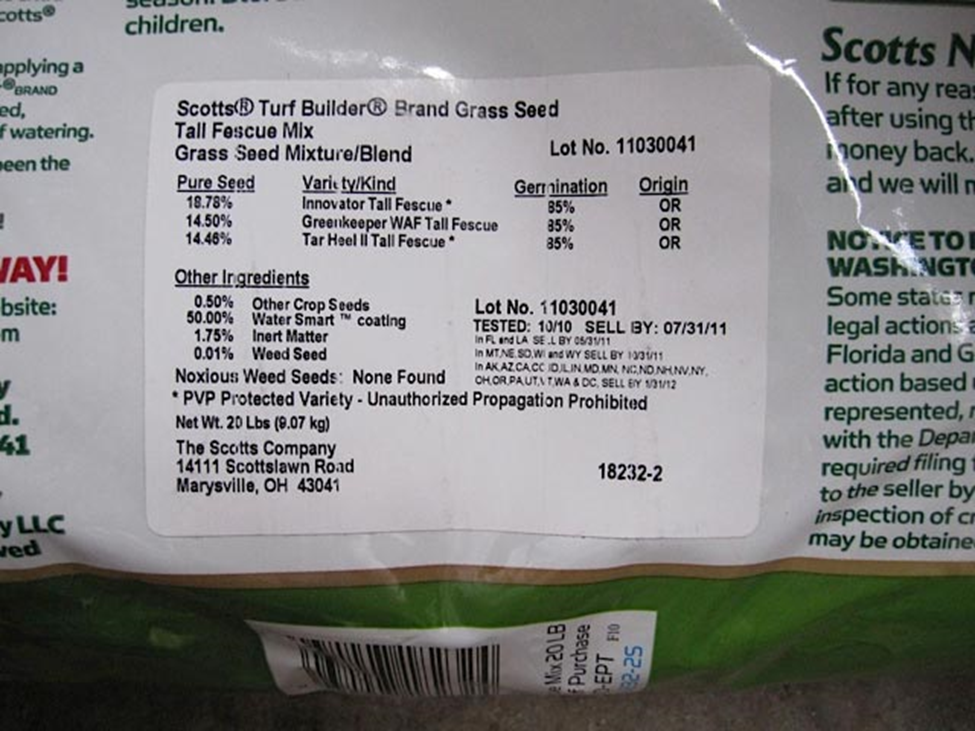
Summary: The Seed industry exists to provide high quality seed to farmers and growers. The value of seed is a measure of its ability to establish the desired field stand at low planting rates, grow into plants which are high-yielding, healthy, and the established type. The livelihood of farmers and the ultimate health of communities relies on the ability of seed to perform and grow into a crop that can be harvested and eaten. A system of laws and regulations has developed over time to protect societies and food systems from liability and risk. A seed conditioner must understand the system of laws and regulations in place, ensure that the conditioning plant and its operation are maintaining seed varietal identity through the entire process and avoid introduction of contaminants. This course is fifth in a series which will walk you through foundational concepts of seed conditioning.
Upskill Credentials: If you finish the entire course including passing the quiz with a score of 80% or better (which you can take up to 3 times) and filling out the short 5 mins feedback survey, then you will earn a badge certificate of completion. This course has been approved for 2 Crop Management CEUs through the national Certified Crop Adviser program.
Acknowledgements: This online micro-credential upskilling course is offered through the CSU Ag Upskilling program. This material is based upon work that is supported by the National Institute of Food and Agriculture, U.S. Department of Agriculture, under award number 2024-68018-42796, administered by Colorado State University. USDA is an equal opportunity employer and service provider. Any opinions, findings, conclusions, or recommendations expressed in this publication are those of the author(s) and do not necessarily reflect the view of the U.S. Department of Agriculture.

The enrollment fee for this course is $50.
You may also choose to purchase all 7 of the CSU Upskilling Seed Conditioning Courses for a discounted price of $300. To do so, click the link below.
- Teacher: Tamla Blunt
- Teacher: Deana Namuth-Covert
- Teacher: Rick Novak
- Teacher: Laura Pottorff
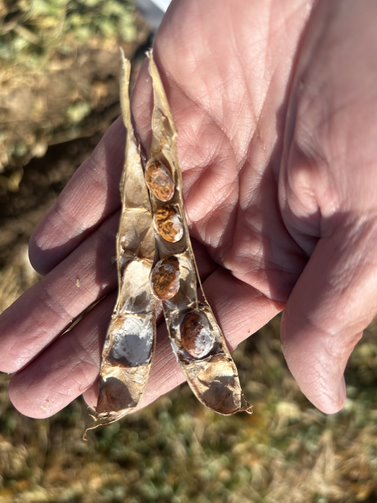
This course section is specifically for Pesticide Applicators working on CEUs with the Colorado Department of Agriculture's Licensing Program
Summary: Seed can serve as a pathway for introducing plant diseases and other pests to new environments and new countries. The risk to agriculture is very high should a new pathogen become introduced and established in an important crop. Seed of over 300 species of plants are moved globally, often several times before being sold commercially. Therefore, the removal or management of seed borne disease is imperative to protect global agriculture and trade. This course is seventh in a series which will walk you through foundational concepts of seed conditioning.
Upskill Credentials: If you finish the entire course including passing the quiz with a score of 80% or better (which you can take up to 3 times) and filling out the short 5 mins feedback survey, then you will earn a badge certificate of completion. This course has been approved for 2 Integrated Pest Management CEUs through the national Certified Crop Adviser program and 1 credit Continuing Education Credit with the Colorado Department of Agriculture for licensed Colorado qualified supervisors, certified operators, and private applicators.
Time Required: We estimate it will take you 1-2 hours in total to complete the course. You can work on it at your own pace and do not have to complete it in one setting.
ADA Accessibility: We have done our best to follow ADA best practices. Let us know if you run into any problems or require further accommodations.
If you have any questions, please contact your instructor, Laura Pottorff, M.S., Director of Seed Program at: Laura.Pottorff@colostate.edu
Acknowledgements: This online micro-credential upskilling course is offered through the CSU Ag Upskilling program. This material is based upon work that is supported by the National Institute of Food and Agriculture, U.S. Department of Agriculture, under award number 2024-68018-42796, administered by Colorado State University. USDA is an equal opportunity employer and service provider. Any opinions, findings, conclusions, or recommendations expressed in this publication are those of the author(s) and do not necessarily reflect the view of the U.S. Department of Agriculture.

The enrollment fee for this course is $50.
You may also choose to purchase all 7 of the CSU Upskilling Seed Conditioning Courses for a discounted price of $300, please contact Deana Namuth-Covert at Deana.namuth-covert@colostate.edu.
- Teacher: Tamla Blunt
- Teacher: Deana Namuth-Covert
- Teacher: Rick Novak

Summary: Seed can serve as a pathway for introducing plant diseases and other pests to new environments and new countries. The risk to agriculture is very high should a new pathogen become introduced and established in an important crop. Seed of over 300 species of plants are moved globally, often several times before being sold commercially. Therefore, the removal or management of seed borne disease is imperative to protect global agriculture and trade. This course is seventh in a series which will walk you through foundational concepts of seed conditioning.
Upskill Credentials: If you finish the entire course including passing the quiz with a score of 80% or better (which you can take up to 3 times) and filling out the short 5 mins feedback survey, then you will earn a badge certificate of completion. This course has been approved for 2 Integrated Pest Management CEUs through the national Certified Crop Adviser program.
Time Required: We estimate it will take you 1-2 hours in total to complete the course. You can work on it at your own pace and do not have to complete it in one setting. Click on the eBook link below to begin.
ADA Accessibility: We have done our best to follow ADA best practices. Let us know if you run into any problems or require further accommodations.
If you have any questions, please contact your instructor, Laura Pottorff, M.S., Director of Seed Program at: Laura.Pottorff@colostate.edu
Acknowledgements: This online micro-credential upskilling course is offered through the CSU Ag Upskilling program. This material is based upon work that is supported by the National Institute of Food and Agriculture, U.S. Department of Agriculture, under award number 2024-68018-42796, administered by Colorado State University. USDA is an equal opportunity employer and service provider. Any opinions, findings, conclusions, or recommendations expressed in this publication are those of the author(s) and do not necessarily reflect the view of the U.S. Department of Agriculture.

The enrollment fee for this course is $50.
You may also choose to purchase all 7 of the CSU Upskilling Seed Conditioning Courses for a discounted price of $300. To do so, click the link below.
- Teacher: Tamla Blunt
- Teacher: Deana Namuth-Covert
- Teacher: Rick Novak
- Teacher: Laura Pottorff
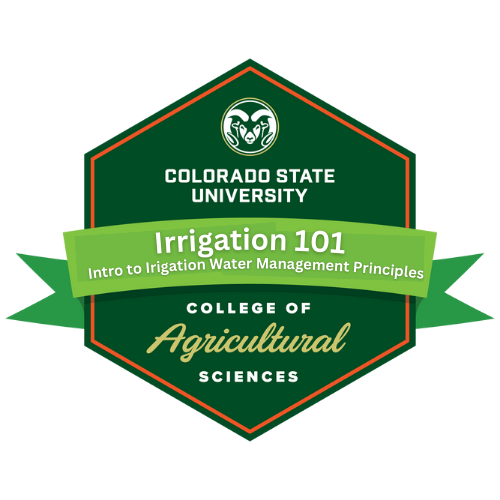
Summary: Irrigation is defined as the watering of land (or other plant growth media) by artificial means to foster plant growth. This can be very costly and the availability of supplemental water may be scarce, so it is important to be able to calculate accurately how much water to apply and when. This lesson will introduce you the underlying concepts you will need to consider.
After completing this lesson, you will be able to:
- Explain how the systems approach can be used to manage water in irrigated systems.
- Identify the fluxes (flows) of water and energy in an irrigated soil-plant-atmosphere system.
- Describe how the Irrigator’s Equation can be used to quantify the four (4) major variables involved in managing irrigation systems.
- Use the principle of conservation of mass to determine the water budget (also called water balance) of a soil-plant-atmosphere (SPA) system.
- Use the principle of conservation of energy to determine the energy budget (also called energy balance) of a SPA system.
Time Required: We estimate it will take you 2 hours in total to complete the lesson. You can work on it at your own pace and do not have to complete it in one setting.
Who Would Benefit: A variety of people will find this upskilling course useful from adults to high school students. This includes careers (or hobbyists) growing plants (ie field crops, greenhouse production, turf and lawns, gardens, etc.) and wishing to save money and water by better timing irrigation applications.
Upskill Credentials: If you finish the entire course including passing a final quiz (which you can take up to 3 times), then you will earn a badge certificate of completion. This has also been approved for 2 Soil and Water Management CEUs through the national Certified Crop Adviser program.
Instructor: Dr. Allan A. Andales is a Professor and Extension Specialist of Irrigation and Water Science in the Department of Soil and Crop Sciences, Colorado State University (CSU). He has a joint appointment in the Department of Civil and Environmental Engineering. Dr. Andales applies principles of soil and water engineering, environmental biophysics, and numerical methods to study the effects of management practices and environmental factors on field hydrology and agricultural production. Experimental data are used to develop computer models and decision support tools that can improve agricultural water use efficiency and water quality. He is a member of the CSU Extension Water Resource Management Team that engages the public in addressing agricultural and urban water issues in Colorado.
ADA Accessibility: We have done our best to follow ADA best practices. Let us know if you run into any problems or require further accommodations.
Acknowledgements: This online micro-credential upskilling course is offered through the CSU Ag Upskilling program. Development was supported in part by funding from the CHS Foundation, administered by Colorado State University (2022). The CHS Foundation, funded by charitable gifts from CHS Inc., is focused on developing a new generation of agriculture leaders for life-long success. Together, with our partners, we are igniting innovation and driving excellence in agriculture education, cultivating high impact programs for rural youth and accelerating potential for careers in agriculture. Learn more at CHS Foundation.


- Teacher: Allan Andales
- Teacher: Tamla Blunt
- Teacher: Deana Namuth-Covert
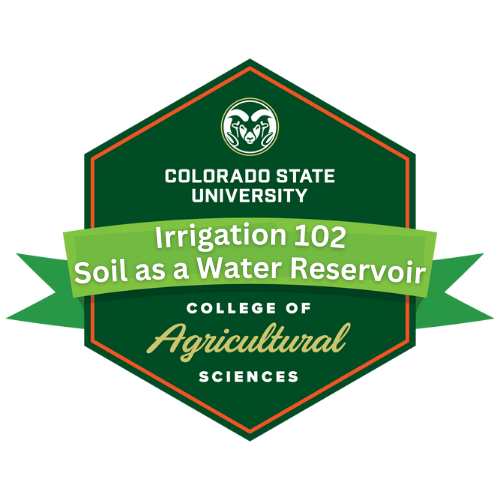
Summary: The goal of irrigation is to add water to the soil where the plant roots are actively growing (the root zone). The soil serves as a water reservoir, from which plants can withdraw water needed for growth. In irrigation management, it is necessary to know the characteristics of the soil in the area that you will be irrigating. These soil characteristics can be used to determine the amount of water in the root zone that is available to the plants.
After completing this lesson, you will be able to:
- Describe the concept of depth of water.
- Determine the depth of water that is available to the plants.
- Use the concept of depth of water to estimate the net irrigation requirement (i.e., soil water deficit) of the soil root zone.
Time Required: We estimate it will take you 2 hours in total to complete the lesson. You can work on it at your own pace and do not have to complete it in one setting.
Who Would Benefit: A variety of people will find this upskilling course useful from adults to high school students. This includes careers (or hobbyists) growing plants (ie field crops, greenhouse production, turf and lawns, gardens, etc.) and wishing to save money and water by better timing irrigation applications.
Upskill Credentials: If you finish the entire course including passing a final quiz (which you can take up to 3 times), then you will earn a badge certificate of completion. It has been approved for 2 Soil and Water Management CEUs through the national Certified Crop Adviser program.
Instructor: Dr. Allan A. Andales is a Professor and Extension Specialist of Irrigation and Water Science in the Department of Soil and Crop Sciences, Colorado State University (CSU). He has a joint appointment in the Department of Civil and Environmental Engineering. Dr. Andales applies principles of soil and water engineering, environmental biophysics, and numerical methods to study the effects of management practices and environmental factors on field hydrology and agricultural production. Experimental data are used to develop computer models and decision support tools that can improve agricultural water use efficiency and water quality. He is a member of the CSU Extension Water Resource Management Team that engages the public in addressing agricultural and urban water issues in Colorado.
ADA Accessibility: We have done our best to follow ADA best practices. Let us know if you run into any problems or require further accommodations.
Acknowledgements: This online micro-credential upskilling course is offered through the CSU Ag Upskilling program. Development was supported in part by funding from the CHS Foundation, administered by Colorado State University (2022). The CHS Foundation, funded by charitable gifts from CHS Inc., is focused on developing a new generation of agriculture leaders for life-long success. Together, with our partners, we are igniting innovation and driving excellence in agriculture education, cultivating high impact programs for rural youth and accelerating potential for careers in agriculture. Learn more at CHS Foundation.
- Teacher: Allan Andales
- Teacher: Deana Namuth-Covert
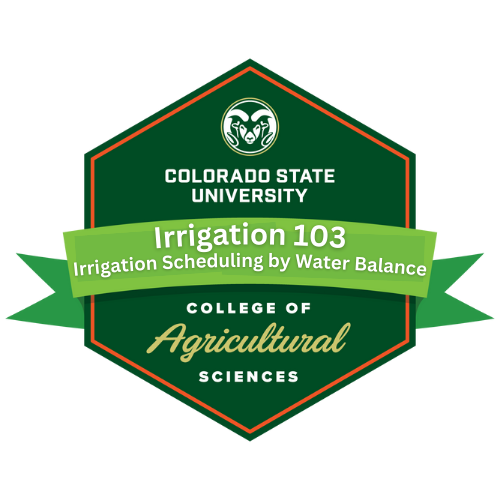
Summary: To effectively utilize limited irrigation resources in the most cost-effective manner requires balancing the inputs and outputs of water fluxes, as well as water that is stored in the soil profile. Best irrigation management scheduling practices focus on water balance in the rootzone because that is where the plant/crop is extracting water (and nutrients) from the soil. It is here we estimate the irrigation water requirements to maintain healthy plants. Decisions on when and how much irrigation water to apply depends on the soil water deficit and the management-allowed depletion (MAD). This lesson will walk you through each of these concepts including real world problem scenarios.
After completing this lesson, you will be able to:
- Use the water balance of the root zone to estimate the irrigation water requirement.
- Make irrigation decisions by comparing the soil water deficit to the management-allowed depletion.
Time Required: We estimate it will take you 2 hours in total to complete the lesson. You can work on it at your own pace and do not have to complete it in one setting.
Who Would Benefit: A variety of people will find this upskilling course useful from adults to high school students. This includes careers (or hobbyists) growing plants (ie field crops, greenhouse production, turf and lawns, gardens, etc.) and wishing to save money and water by better timing irrigation applications.
Upskill Credentials: If you finish the entire course including passing a final quiz (which you can take up to 3 times), then you will earn a badge certificate of completion. This has also been approved for 2 Soil and Water Management CEUs through the national Certified Crop Adviser program.
Instructor: Dr. Allan A. Andales is a Professor and Extension Specialist of Irrigation and Water Science in the Department of Soil and Crop Sciences, Colorado State University (CSU). He has a joint appointment in the Department of Civil and Environmental Engineering. Dr. Andales applies principles of soil and water engineering, environmental biophysics, and numerical methods to study the effects of management practices and environmental factors on field hydrology and agricultural production. Experimental data are used to develop computer models and decision support tools that can improve agricultural water use efficiency and water quality. He is a member of the CSU Extension Water Resource Management Team that engages the public in addressing agricultural and urban water issues in Colorado.
ADA Accessibility: We have done our best to follow ADA best practices. Let us know if you run into any problems or require further accommodations.
Acknowledgements: This online micro-credential upskilling course is offered through the CSU Ag Upskilling program. Development was supported in part by funding from the CHS Foundation, administered by Colorado State University (2022). The CHS Foundation, funded by charitable gifts from CHS Inc., is focused on developing a new generation of agriculture leaders for life-long success. Together, with our partners, we are igniting innovation and driving excellence in agriculture education, cultivating high impact programs for rural youth and accelerating potential for careers in agriculture. Learn more at CHS Foundation.
- Teacher: Allan Andales
- Teacher: Deana Namuth-Covert
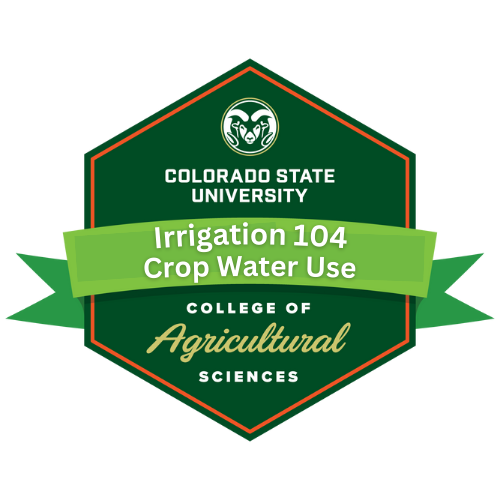
Summary: When making decisions about when to irrigate a crop, no matter the specific plant or scenario, it is important to take into consideration evapotranspiration rates which provide an estimate of water flux out of your system. The challenge is that evapotranspiration varies a lot depending on the specific plant, its growth stage plus changing weather (or greenhouse) conditions. Precision agriculture scientists have been able to characterize two reference crop values as a way to standardize evapotranspiration calculations based on weather data. In this lesson you will learn what is meant by a reference crop, crop coefficient, and water stress coefficient and how you can use these to inform your irrigation management decisions.
Time Required: We estimate it will take you 2 hours to complete the lesson. You can work on it at your own pace and do not have to complete it in one setting.
Who Would Benefit: A variety of people will find this upskilling course useful from adults to high school students. This includes careers (or hobbyists) growing plants (ie field crops, greenhouse production, turf and lawns, gardens, etc.) and wishing to save money and water by better timing irrigation applications.
Upskill Credentials: If you finish the entire course including passing a final quiz (which you can take up to 3 times), then you will earn a badge certificate of completion. It has been approved for 2 Soil and Water Management CEUs through the national Certified Crop Adviser program.
Instructor: Dr. Allan A. Andales is a Professor and Extension Specialist of Irrigation and Water Science in the Department of Soil and Crop Sciences, Colorado State University (CSU). He has a joint appointment in the Department of Civil and Environmental Engineering. Dr. Andales applies principles of soil and water engineering, environmental biophysics, and numerical methods to study the effects of management practices and environmental factors on field hydrology and agricultural production. Experimental data are used to develop computer models and decision support tools that can improve agricultural water use efficiency and water quality. He is a member of the CSU Extension Water Resource Management Team that engages the public in addressing agricultural and urban water issues in Colorado.
ADA Accessibility: We have done our best to follow ADA best practices. Let us know if you run into any problems or require further accommodations.
Acknowledgements: This online micro-credential upskilling course is offered through the CSU Ag Upskilling program. Development was supported in part by funding from the CHS Foundation, administered by Colorado State University (2022). The CHS Foundation, funded by charitable gifts from CHS Inc., is focused on developing a new generation of agriculture leaders for life-long success. Together, with our partners, we are igniting innovation and driving excellence in agriculture education, cultivating high impact programs for rural youth and accelerating potential for careers in agriculture. Learn more at CHS Foundation.


- Teacher: Allan Andales
- Teacher: Deana Namuth-Covert
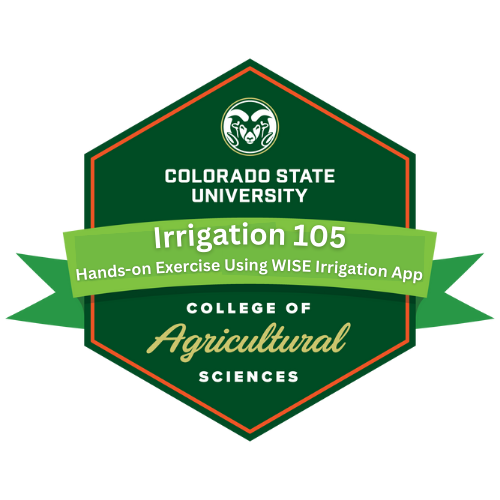
Summary: No matter the particular plant scenario you are working with (ie field crop, pastureland, Greenhouse business, turf grass, home garden and landscaping, etc.) being able to accurately estimate the water needs and timing of irrigation will help lower costs, as well as preserve limited water supplies. In this lesson you will learn how to use a specific irrigation app which has been developed by a group of public researchers and is free for your use. This app, along with the foundational irrigation principles you learned in previous lessons and/or from your previous knowledge will help you maximize the effects of your irrigation applications while minimizing costs. This lesson uses a Colorado field example.
After completing this lesson, you will be able to:
- Set up a field in the Water Irrigation Scheduler for Efficient Application (WISE) App to schedule irrigations during one growing season.
- Input irrigation amounts in WISE based on estimated soil water deficits (D) and the crop’s management allowed depletion (MAD) during one growing season.
- Interpret the WISE water balance outputs.
Time Required: We estimate it will take you 2 hours to complete the lesson. You can work on it at your own pace and do not have to complete it in one setting.
Who Would Benefit: A variety of people will find this upskilling course useful from adults to high school students. This includes careers (or hobbyists) growing plants (ie field crops, greenhouse production, turf and lawns, gardens, etc.) and wishing to save money and water by better timing irrigation applications.
Upskill Credentials: If you finish the entire course including passing a final quiz (which you can take up to 3 times), then you will earn a badge certificate of completion. It has been approved for 2 Crop Management CEUs through the national Certified Crop Adviser program.
Instructor: Dr. Allan A. Andales is a Professor and Extension Specialist of Irrigation and Water Science in the Department of Soil and Crop Sciences, Colorado State University (CSU). He has a joint appointment in the Department of Civil and Environmental Engineering. Dr. Andales applies principles of soil and water engineering, environmental biophysics, and numerical methods to study the effects of management practices and environmental factors on field hydrology and agricultural production. Experimental data are used to develop computer models and decision support tools that can improve agricultural water use efficiency and water quality. He is a member of the CSU Extension Water Resource Management Team that engages the public in addressing agricultural and urban water issues in Colorado.
ADA Accessibility: We have done our best to follow ADA best practices. Let us know if you run into any problems or require further accommodations.
Acknowledgements: This online micro-credential upskilling course is offered through the CSU Ag Upskilling program. Development was supported in part by funding from the CHS Foundation, administered by Colorado State University (2022). The CHS Foundation, funded by charitable gifts from CHS Inc., is focused on developing a new generation of agriculture leaders for life-long success. Together, with our partners, we are igniting innovation and driving excellence in agriculture education, cultivating high impact programs for rural youth and accelerating potential for careers in agriculture. Learn more at CHS Foundation.


- Teacher: Allan Andales
- Teacher: Deana Namuth-Covert
Curso de Cuidado y Manejo del Caballo para Vaqueros y Procesadores - Versión en Español es ofrecido por la Corporación HorseQuest para el público en general, productores de ganado de engorda y empleados que aprenderán cómo manejar con seguridad los caballos (horses) cuando se trabaja en los corrales de alimentación (feedlot), así como también el cuidado y manejo básica del caballo.
Para obtener más información o para inscribirse contacte a Kathy Anderson, en la Universidad de Nebraska-Lincoln, a la dirección de correo electrónico: kanderson1@unl.edu
Para asistencia técnica por favor contacte campushelp@extension.org
Este curso requiere una cuota de inscripción de $25. Una vez pagada la cuota de inscripción, recibirá un correo electrónico con la clave de acceso.
Por favor, vaya a: Pen Rider and Processors Horse Safety and Care Certification Course (http://marketplace.unl.edu/extension/programs/feedlot-horse.html) para registrarse.
- Teacher: Kathy Anderson
- Teacher: Colleen Brady
In this section on training, efforts will be made to explain and simplify the process of developing a relationship with the horse where communication is simple and straightforward for both the horse and rider.
For information contact Colleen Brady, bradyc@purdue.edu.
The fee for this course is $10. To purchase and enroll in the course, click the following button.
If you purchase at least $40 worth of courses from this category, you can receive a 20% discount by entering the voucher code of HorseQuest20.
- Teacher: Kathy Anderson
- Teacher: Colleen Brady
- Teacher: Kris Hiney
eLearn Urban Forestry is a self-led, online, distance learning program geared speciifcally toward beginning urban foresters and those allied professionals working in and around urban and urbanizing landscapes, including service foresters, natural resource planners, landscape architects, city officials and public works employees. The program is comprised of ten learning modules: The Benefits and Costs of the Urban Forest; Tree Growth and Development; Urban Soils; Site, Tree Selection and Planting; Arboriculture; Assessing and Managing Tree Risk; Tree Disorder Diagnosis and Management; Trees and Construction; Public Policy and Urban Forestry; and Urban Forest Management.
For more information or to enroll, contact Leslie Boby, Southern Regional Extension Forestry, University of Georgia at lboby@sref.info.
- Teacher: Leslie Boby
For more information contact Kathy Anderson, University of Nebraska–Lincoln, at kanderson1@unl.edu
The fee for this course is $10. To purchase and enroll in the course, click the following button.
If you purchase at least $40 worth of courses from this category, you can receive a 20% discount by entering the voucher code of HorseQuest20.
- Teacher: Kathy Anderson
- Teacher: Colleen Brady
- Teacher: Kris Hiney
- Teacher: Laura Kenny
Equine Herpes Virus provides the participants the opportunity to learn the different ways the EHV-1 virus is expressed in horses, and know how to prevent and treat the disease. This course offers a badge and is one of several available in the HorseQuest Badge Portfolio. This course includes a video, a learning lesson, and a quiz.
The fee for this course is $10. To purchase and enroll in the course, click the following button:
If you purchase at least $40 worth of courses from this category, you can receive a 20% discount by entering the voucher code of HorseQuest20.
- Teacher: Kathy Anderson
- Teacher: Colleen Brady
Why is good pasture important to horses? Well, because horses should consume at least 1-2% of their body weight each day in forage (hay or pasture). A 1000 lb horse will need from 2 - 3 acres to provide enough pasture to meet its total nutrient requirements.
The fee for this course is $10. To purchase and enroll in the course, click the following button:
If you purchase at least $40 worth of courses from this category, you can receive a 20% discount by entering the voucher code of HorseQuest20.
- Teacher: Kathy Anderson
- Teacher: Colleen Brady
- Teacher: Kris Hiney
- Teacher: Laura Kenny
- Teacher: Krishona Martinson
- Teacher: Carey Williams
What is your horse's body condition? Did you know there was a scoring system to rank your horse's physical condition? Check out our latest learning lesson about how to body condition score your horse. Learn a time-tested and accepted method to evaluate your horse's fat cover and the balance between the food he eats and the amount of energy he burns.
For information contact Colleen Brady, bradyc@purdue.edu
The fee for this course is $10. To purchase and enroll in the course, click the following link.
If you purchase at least $40 worth of courses from this category, you can receive a 20% discount by entering the voucher code of HorseQuest20.
- Teacher: Kathy Anderson
- Teacher: Colleen Brady
A course for Extension staff at North Dakota State University, this provides a self-paced guide to evaluating extension programs, materials, and communications.
For more information or to enroll contact robert.bertsch@ndsu.edu
- Teacher: Sonja Fuchs
For more information about this course or to enroll contact Curt Emanuel at cemanuel@purdue.edu
- Teacher: AMANDA MOSIMAN
Ohio State University Extension Occasional Quantity Cooks training helps extension volunteers prepare as they plan for, prepare and deliver food for a one-time event in their county. Participants take the pre-test before they begin the program and then take the post-test at the end. A certificate of completion is generated to give to their County Educator/supervisor as verification that they have completed the training.
- Teacher: Nicole Arnold
- Teacher: Jonathan Gladden
- Teacher: Kate Shumaker
